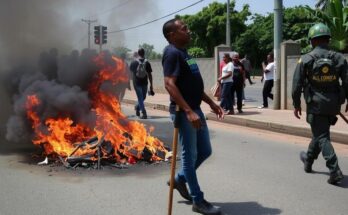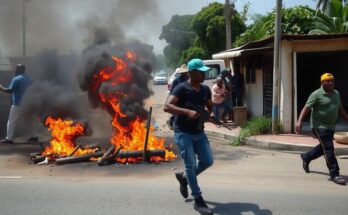Recent elections in Southern Africa reveal a wave of political change, particularly in South Africa, Botswana, Mozambique, and Namibia. The electorate increasingly demands accountability from long-standing liberation movements, expressing dissatisfaction with governance and an urgent need for economic renewal. As traditional parties face mounting pressure, the landscape indicates a possible shift towards more dynamic and responsive political representation.
Elections in Southern Africa have revealed a significant political shift, particularly in nations like South Africa, Botswana, Mozambique, and Namibia. The recent electoral outcomes signify a demand for renewal amid long-standing governance by former liberation movements. In South Africa, the ANC’s loss of a majority necessitated the formation of a coalition, reflecting discontent among voters, particularly those marginalized under current leadership. Analysts highlight the influence of figures such as Jacob Zuma, whose appeal to nationalism resonated with dissatisfied voters.
In Botswana, the elections marked a pivotal change, with the opposition party, UDC, winning a parliamentary majority after decades of BDP dominance. The new leadership is poised to address critical economic issues that have plagued the youth, such as high unemployment and rising living costs, revealing the electorate’s frustration with the previous administration’s failure to deliver economic promises. Similarly, Mozambique continues to express demands for change, as the Frelimo party, despite recent allegations of electoral fraud, remains in power, facing growing protests and mounting dissatisfaction particularly among urban middle-class citizens.
Namibia’s recent elections were more conservative, reaffirming the SWAPO party’s grip on power with the historic nomination of a female presidential candidate. Although this may seem progressive, it also indicates the continuity of the status quo within the political landscape, as calls for change from younger demographics remain largely unheeded. The regional elections collectively underscore a growing disillusionment with established political entities, as voters increasingly prioritize economic accountability and social equity over historical narratives of liberation. As the political landscape evolves, the enduring legacy of past movements faces scrutiny from a populace demanding immediate and impactful change.
The Southern African political landscape is characterized by a predominance of former liberation movements that have historically guided governance since the end of colonial rule. This article discusses elections in four key countries: South Africa, Botswana, Mozambique, and Namibia, highlighting the distinct challenges and changes each face. Recent elections signal a yearning for political transformation, driven by social discontent, issues of governance, and the need for economic stability in a region marked by inequality and historical legacies. As younger voters emerge and demand new visions, the established political order is increasingly challenged.
In summary, the recent elections across Southern Africa illustrate a significant shift toward political renewal. The electorate, particularly the youth, is increasingly vocal about their dissatisfaction with former liberation movements, demanding accountability and effective governance in addressing economic disparities and social injustices. While some nations experience a surge in opposition support, others maintain the status quo, highlighting the complex dynamics of change in the region. The ruling parties must recognize this emerging trend and respond accordingly to avoid political obsolescence.
Original Source: www.fairobserver.com




